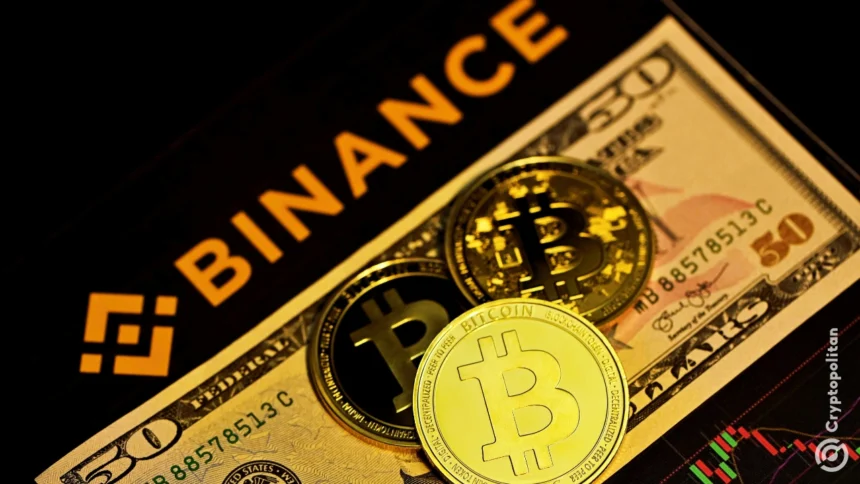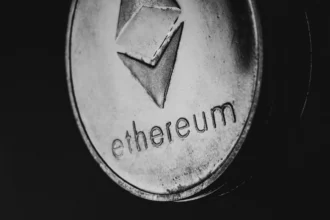
Following its decision to list stablecoin USD1, Binance.US has criticized US Senator Chris Murphy’s claims that the exchange is favoring assets related to President Donald Trump.
On Wednesday, Binance US defended its listing of the USD1 stablecoin issued by Trump-affiliated World Liberty Financial, after Sen. Murphy wrote a message to X yesterday alleging that the exchange was promoting the asset because of Trump’s business relationship with Binance CEO Zhao Changpeng.
as reported Cryptopolitan last week saw President Trump grant a presidential pardon to Mr. Zhao, who had been convicted of violating US anti-money laundering laws. Murphy, a Democrat from Connecticut, wrote to X that the $1 listing was “return” for the pardon.
“A week after President Trump pardoned the owner of Binance for a shocking series of crimes related to financing terrorists and sex offenders, Binance began promoting the Trump cryptocurrency. The White House is a full-time, 24/7 corruption machine,” he wrote.
Binance US said in a statement in response to Liberal senators that the listing decision is subject to a rigorous review process.
“We conduct comprehensive due diligence and legal reviews before listing any asset on Binance US, whether it is a stablecoin, a new ecosystem project, or a meme token,” the company said. repeated.
Binance US: Business decisions are unfairly politicized
The exchange’s US arm noted that both USD1 and WLFI are already listed on more than 20 major exchanges, including Coinbase, Robinhood, and Kraken.
“Both of these assets have been approved by our listing committee in the normal course of business for some time,” the statement continued. “To be clear, this is a business decision on the part of Binance US and nothing more. It is unfortunate that even routine business decisions are now being unfairly politicized by elected officials.”
In theory, listing on Binance.US is intended to expand stablecoin options for US traders. However, Mr. Zhao’s pardon has come under political fire, with opponents of the Trump administration claiming it is an example of undue influence by powerful crypto interests.
Chao, who co-founded Binance in 2017, pleaded guilty in 2023 to failing to implement an effective anti-money laundering program. The plea was part of a settlement in which Binance agreed to plead guilty to criminal charges and pay more than $4.3 billion in fines to the U.S. government. The Binance co-founder personally paid a $50 million fine and served four months in federal prison before being released last year.
On Monday, Congressman Rohit Khanna of California’s 17th District accused President Trump of engaging in open corruption in an interview with CNBC.
“There’s a foreign billionaire who basically engaged in money laundering, funneled money to Hamas, funneled money to Iran, funneled money to child molesters. He was convicted and served four years in prison. And after basically funneling money to terrorists, he’s petitioning Donald Trump for a pardon,” the 49-year-old California congressman claimed.
Zhao’s pardon is corrupt.
Let me briefly explain what’s going on.
Today, I am introducing legislation that would ban the president, his family, members of Congress, and all elected officials from trading in virtual currencies and stocks. @unusual_whales has been sounding the alarm on this for years. pic.twitter.com/OgibgdnqkK
— RoKhanna (@RoKhanna) October 27, 2025
Khanna suggested that Zhao offer financial support to World Liberty and receive a pardon in return. “Donald Trump basically gave him amnesty while funding Donald Trump’s crypto stablecoin. This is highly illegal. This is right under our noses,” he said.
Do Trump’s businesses present a conflict of interest?
At the beginning of his first term, playing cards This is a departure from the modern presidential norm established by figures like Jimmy Carter, who sold his peanut farms to avoid conflict.
The US president placed his assets in a trust managed by his family, with himself as the sole beneficiary. During his first tenure in the Oval Office, he was repeatedly accused of profiting from domestic and foreign interests, including visits to Trump-owned properties by officials representing 20 foreign governments. The Secret Service reportedly spent more than $10 million on his hotel stays.
After regaining the US top spot, President Trump agreed to turn everything over to a trust controlled by his sons, but naysayers believe he is making decisions that directly benefit companies.
“This unprecedented disregard for long-standing ethical boundaries was shocking at the time. It only seems strange now,” said Daniel Caputo, senior legal counsel for ethics at the nonprofit watchdog Campaign Legal Center. “With this new administration, there is not only a disregard for ethics rules, but a contempt for them.”
The smartest crypto minds are already reading our newsletter. Do you want to join? Please join us.






